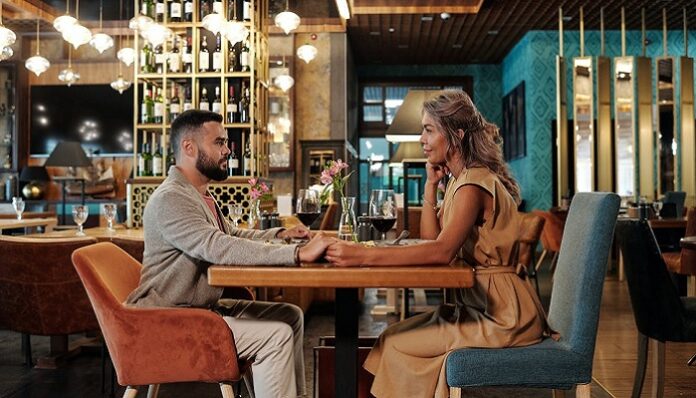
Chronic disabilities interfere with your everyday life and can cause some major issues when it comes to dating.
As someone with Ehlers Danlos Syndrome, a chronic disability, I can say that it’s not pleasant to be controlled by your physical limitations in any situation, but it can be especially exhausting and intimidating when trying to have a romantic relationship. While I only have experience with physical disabilities, specifically those that reduce your mobility, it’s important to note that people with all types of disabilities may have their own feelings about dating.
Just be a decent human being and don’t judge.
Disabilities aren’t generally considered attractive or sexy. People with chronic disabilities may have feeding tubes, colostomy bags, braces or any other combination of medical equipment attached to their bodies. These can weigh us down and make us feel bulky, awkward or uncomfortable — all horrible feelings to have when trying to go out on a date.
It’s difficult because dating means going out. Like, outside. In public. And that can be scary.
So how can you make people feel comfortable while dating with disabilities? Here are some common thoughts that go through the minds of people with chronic disabilities when it comes to dating — and how you can change their minds.
1. We’re too much trouble.
Dating means going out. Like, outside. In public. And that can be scary.
Sometimes, we can’t even focus on a date because we’re worried about our posture, how we can navigate the crowd up ahead or when we’ll pass a restroom next. We might need to adjust our braces, stretch or interact with the equipment just to stay upright for another hour.
Simply try to recognize our discomfort and ask us about it — nicely. Ask us if we need to sit down, get a drink of water or leave a crowded room for someplace quieter. Doing these things can make us feel more at home with you and less like a spectacle or a burden while we’re supposed to be enjoying the date.
2. Dating is only about long-term relationships.
While not all dates turn into exclusive relationships, the general rule is that you should only date people you will want to continue dating. Makes sense, right? Well, some people with chronic disabilities find hookups easier to handle than long-term relationships either because they cannot find someone willing to accept them and their disability or they prefer hookups due to their quick nature.
Many people with chronic disabilities have day-to-day needs that must be met that may include taking prescription medications, going to physical therapy or resting. Some may have caregivers. Others may rely on family members or close friends for emotional and physical support.
Whatever the case, we often have more needs than the average person. This can make us think that long-term commitment to a significant other isn’t possible.
You should show us that you are willing to accept us as we are and adapt to any upcoming challenges of our illnesses. I love it when people I care about research more information about my illness, so that may be a great way to show that you are devoted to the relationship. We’re not seeking out a romantic partner to be our caregivers, but we do understand that our partner may have to act as a caregiver in some circumstances and need them to understand and accept our situation.
If you are willing to enjoy the good and endure the bad with us, then we might feel better about dating.
3. Dating is too vulnerable.
According to the New York Times, the less mobile a woman is, the more likely she is to experience relationship abuse. This abuse might even be directly related to her disability. For instance, someone may steal a wheelchair to incapacitate the person or ridicule him/her for being different as a form of emotional abuse.
I can’t speak for everyone with a chronic disability. But the concept of dating terrifies me. It’s because of the fact that I already feel vulnerable in my own skin. I don’t always like to talk about my illness because it can upset me. But I will mention it to people close to me as a precaution. I need them to know that I could still fall and injure myself. Or that I might need to go to the ER randomly. People with even more limiting disabilities may also fear potential medical issues that can happen while being intimate.
This vulnerability can put us at a greater risk of harm than an abled person.
We don’t assume that every person we date is going to abuse us or put us in harm’s way. But it would be helpful to know our date is an advocate for us. Make sure the restaurant has the appropriate accommodations available, ask us what you can do to help (and what doesn’t help) when our illnesses act up and be flexible. We may need to suggest another restaurant that has gluten-free options. Or have our phones accessible in case of an emergency.
And try not to get too disappointed if/when we cancel plans with you. We don’t want to do it, but we need to take care of our bodies first.
Originally written by Meaghan Summers on YourTango
Featured image via Jep Gambardella on Pexels


















